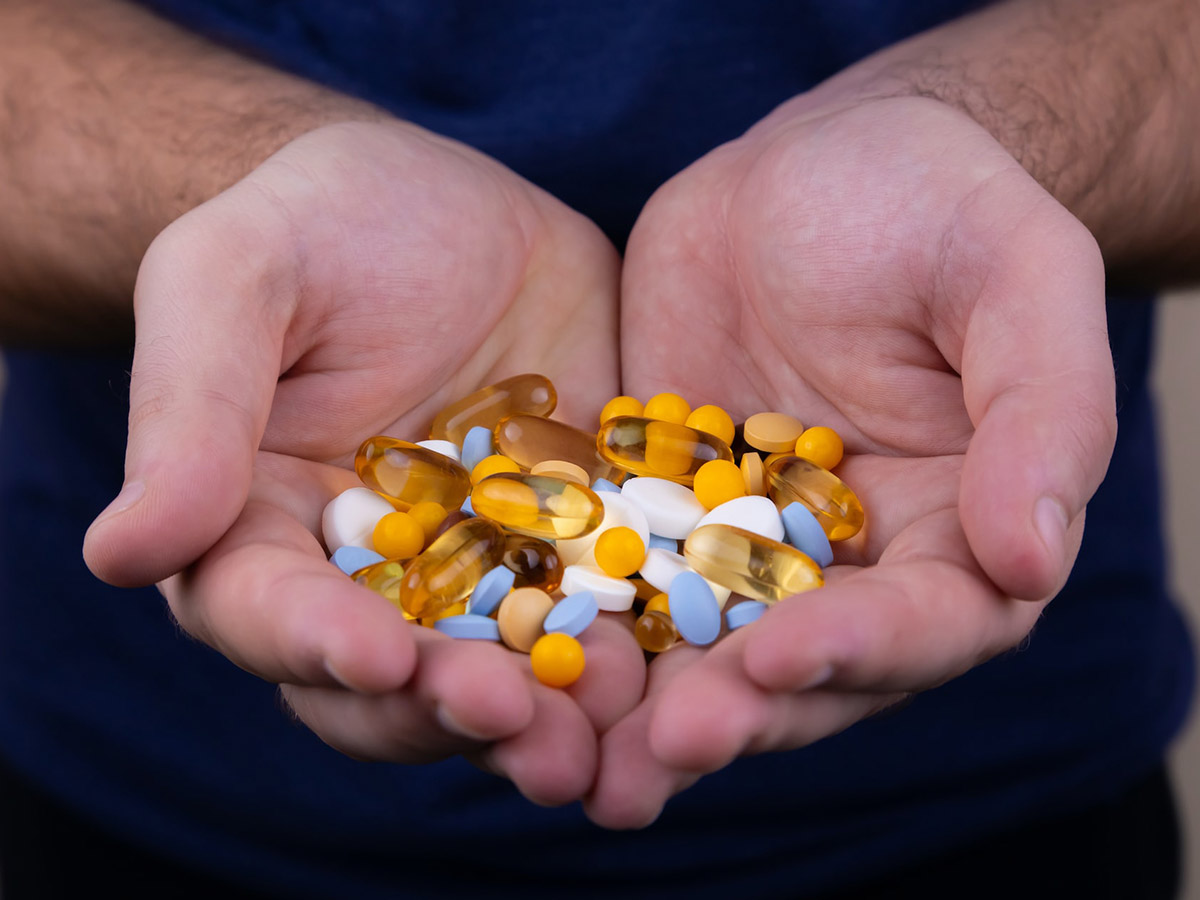Testosterone is a hormone that plays an instrumental role in male aging, in both health and sexual function. We all need a healthy dose of testosterone for various reasons but as human beings get older, our testosterone production decreases significantly and we have to look for alternatives. Nootropics for testosterone are a class of drugs that generally improve cognition after regular use; they can often help boost energy levels and increase stamina — which could be helpful to men over 50 who want to maintain a healthy sex drive.
What are Testosterone Boosting Nootropics?
Testosterone is the hormone responsible for giving men their signature masculine traits, such as deep voices and increased muscle mass. It also plays an important role in sexual function and fertility.
As men age, their testosterone levels naturally decline. This can lead to a number of unwanted side effects, such as fatigue, loss of muscle mass, reduced sex drive, and depression.
Fortunately, there are a number of natural substances that have been shown to boost testosterone levels. These so-called “testosterone-boosting nootropics” can help alleviate the negative side effects of low testosterone and improve overall health and well-being.
Benefits of Testosterone Boosting Nootropics

If you’re looking for an edge in your physical or mental performance, or just want to feel like your old self again, testosterone-boosting nootropics may be the answer. Testosterone is the hormone that not only makes men physically strong and virile but also provides the energy and drives needed to accomplish great things. Unfortunately, as we age, our testosterone levels naturally decline, leading to a gradual loss of muscle mass, increased body fat, decreased sex drive, and more.
While there’s no fountain of youth that can completely halt this process, research has shown that certain nutrients and compounds can help to boost testosterone levels and mitigate some of the negative effects of low testosterone. These “testosterone-boosting nootropics” can have powerful benefits for men of all ages.
Some of the potential benefits associated with higher testosterone levels include:
• Increased muscle mass
• Decreased body fat
• Improved sexual function and libido
• Greater energy levels and improved mood
• Enhanced cognitive function and memory
If you’re interested in experiencing these benefits for yourself, read on to learn about the most effective testosterone-boosting nootropics available today.
Things to Consider Before Taking Nootropics for Testosterone
Before you begin taking nootropics to boost your testosterone levels, there are a few things you should consider. First, make sure that you consult with your doctor to ensure that nootropics are right for you. There are some potential side effects associated with taking nootropics, so it’s important to be aware of these before starting any supplement regimen.
In addition, it’s also important to be aware of the potency of the nootropics you’re taking. Some testosterone-boosting nootropics are more potent than others, so it’s important to start with a lower dose and increase gradually as needed. Be sure to read the directions and warnings on each product carefully to avoid accidentally taking too much.
Finally, remember that no matter how effective they may be, nootropics are not a substitute for a healthy lifestyle. Eating right and exercising regularly are still the best ways to boost your testosterone levels naturally. Nootropics can complement your healthy lifestyle and help you see even better results, but they won’t work miracles on their own.
Method of Application
If you’re looking to boost your testosterone levels, there are a few different nootropics that can help. Here’s a complete guide to the best testosterone-boosting nootropics for men.
Zinc is one of the most important minerals for testosterone production. It’s involved in over 300 different enzymatic reactions in the body, and multiple studies have shown that zinc deficiency can lead to reduced testosterone levels (1, 2).
Supplementing with zinc is an effective way to ensure adequate intake and restore normal testosterone levels. The recommended dose is 30-60 mg per day.
Magnesium is another mineral that’s essential for testosterone production. It helps to regulate calcium metabolism and gene expression, both of which are important for proper testosterone function (3).
A magnesium deficiency can lead to low testosterone levels, so making sure you get enough of this mineral is crucial for optimal hormone health. The recommended dose is 400-600 mg per day.
Creatine is a compound that’s naturally found in muscle tissue. It has numerous benefits for health and performance, and it can also help to boost testosterone levels (4).
Creatine works by increasing muscle stores of phosphocreatine, which acts as a high-energy reserve that can be used during exercise. This means more ATP is available for muscle contraction, resulting in improved strength and power output. creatine has also been shown to increase free testosterone levels in response to exercise (5).
The recommended dose of creatine is 3-5 grams per day.
Vitamin D is a fat-soluble vitamin that’s involved in numerous physiological processes. It’s well known for its role in calcium metabolism and bone health, but it also helps to regulate testosterone levels (6).
Multiple studies have shown that vitamin D deficiency is associated with low testosterone levels, and supplementing with this vitamin can help to increase testosterone levels (7, 8). The recommended dose of vitamin D is 1,000-2,000 IU per day.
Fenugreek is an herb that’s commonly used in Indian cuisine. It’s also been traditionally used for medicinal purposes, and recent research has shown that it can help to increase testosterone levels (9).
Fenugreek works by inhibiting the enzyme 5α-reductase, which converts testosterone to dihydrotestosterone (DHT). This leads to an increase in free testosterone levels and a decrease in DHT levels. Fenugreek has also been shown to increase insulin sensitivity, which can further enhance the effects of testosterone on muscle growth (10).
The recommended dose of fenugreek is 500-1,000 mg per day.
Leading Brands, Claims and Deals
There are many different brands of testosterone boosters on the market today. Each brand has its own unique blend of ingredients and claims to be the best. But with so many choices, it can be hard to know which one to choose.
To help you make an informed decision, we’ve compiled a list of the leading brands, their claims, and the deals they’re currently offering.
What Are the Benefits of Using Nootropics for Testosterone?
Maximizing testosterone levels through the use of nootropics for testosterone optimization can offer numerous benefits. These cognitive enhancers are believed to enhance focus, memory, and mental clarity, while also potentially improving mood and reducing stress. When combined with exercise and a healthy lifestyle, nootropics may assist in optimizing testosterone production, thus potentially benefiting overall wellness and vitality.
Conclusion
If you’re looking for a way to naturally boost your testosterone levels, then look no further than the nootropics in this guide. These powerful supplements have been specifically designed to help men increase their testosterone levels, resulting in improved muscle mass, increased energy levels, and improved sexual performance. So if you’re ready to take your health and fitness to the next level, be sure to give these testosterone-boosting nootropics a try.
Why it is important to have a healthy testosterone count?
Testosterone is the hormone that is responsible for many things in the male body, including sex drive, bone and muscle mass, and red blood cell production. It is also vital for overall health and well-being. A healthy testosterone count is important for many reasons.
For one, testosterone plays a key role in maintaining bone density. Low levels of testosterone can lead to osteoporosis, a condition in which the bones become weak and porous. In addition, low levels of testosterone can also lead to a decrease in muscle mass. Testosterone helps to build and maintain muscle tissue. Finally, low levels of testosterone can cause a decline in red blood cell production. Red blood cells are responsible for carrying oxygen throughout the body. A decrease in red blood cells can lead to fatigue and other health problems.
Maintaining a healthy testosterone count is important for overall health and well-being. If you are concerned about your testosterone levels, talk to your doctor. There are treatments available if your levels are low.

